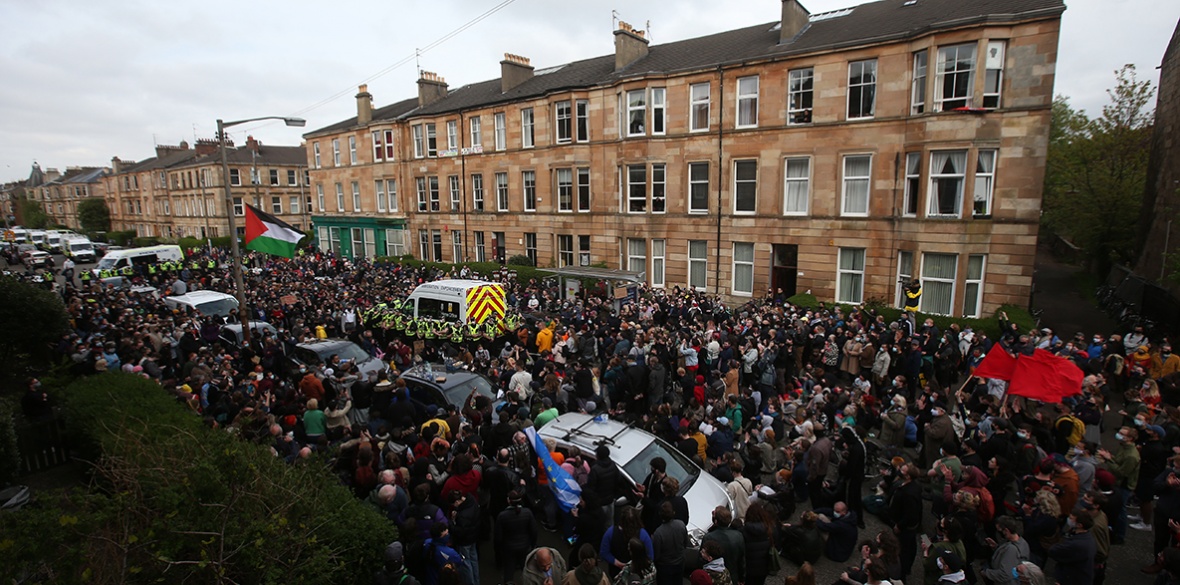THURSDAY’S challenge to the arbitrary power of the state by people in Glasgow — who turned out to prevent the removal of their neighbours by immigration cops — was a moving illustration of the human values that animate most working people.
A careful media blanket has reduced the impact of this exemplary action of solidarity, but this triumph of class power will stimulate more acts of resistance to arbitrary force and the denial of human rights.
It will have awakened in the authorities a real fear that people power could become a potent force in politics once again.
There is, in this part of Scotland, a long tradition of resistance to the boss class and the landlords. The early 20th century saw tenants blocking bailiffs and physically preventing evictions and mass movements against rent increases.
In that case, it was the collective power exerted by women that gave that movement a particular vitality and staying power.
Beyond the fight for jobs the 1970s, worker occupation of the Upper Clyde shipyards challenged the very notion of private ownership and the power of employers to take decisions which affect the life and livelihoods of working people.
But this is not an exclusively Scottish phenomena, although we must pay due tribute to the people of Pollockshields who have given an example to emulate in coming weeks and months.
A century ago British dockers, organised by Harry Pollitt, refused to load armaments bound to Russia to aid the counter-revolution and yesterday dockers in the Italian port city of Livorno — where Italy’s Communist Party was formed 100 years ago — refused to load cargo onto a ship taking armaments to Israel.
Thatcher’s poll tax — which she tested out first in Scotland — crumbled under the blanket refusal of millions to pay up, the resistance of thousands who clogged the courts with their challenges to bourgeois right and the Trafalgar Square defeat inflicted on the Metropolitan Police.
The power that wealth and ownership confers on the parasitic class of bankers and big business, bureaucrats and bankers means little without “armed bodies of men” at their disposal and the backing of an entire system of legal sanctions.
We will see more resistance, especially when the Covid-19 furlough scheme runs down and when the ban on evictions kicks in.
We now know what to do when an immigration control van turns up in our street. The question which must be tackled is how this sense of class consciousness can be given a more durable and effective organisational form when — faced with this solidarity — plain-clothes cops begin to turn up in the middle of the night.
This is a task the labour movement, the anti-austerity and anti-racist movements must make their own. No human being is illegal and we all have a right to home, to security, work and tranquility.
Contrast the selfless spirit of solidarity and sacrifice which animates working people when they are seized of their collective class power with the moral universe of the class enemy.
The latest boss-class scandal centres on the insolvency of the supply chain financing firm Greensill Capital and David Cameron’s lobbying for the firm to receive emergency Covid funding. Cameron fixed a “private drink” between Lex Greenshill and Health Secretary Matt Hancock.
Greensill was an unpaid advisor to Cameron when he was premier. After leaving office, Cameron became an adviser to Greensill Capital and held share options in the company worth, according to reports, up to $60 million (about £50m).
There are different forms of class solidarity. This kind is normal for nobs.












